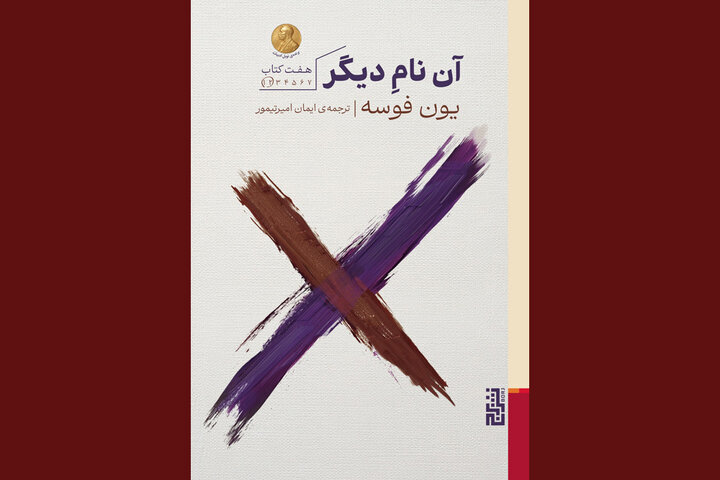Jon Fosse’s “The Other Name” available in Persian

TEHRAN - The Persian translation of the novel “The Other Name” written by Jon Fosse has been released in the Iranian bookstores.
Iman Amirteymour has translated the book and Borj Publication has brought it out in 392 pages, Mehr reported.
“The Other Name” follows the lives of two men living close to each other on the west coast of Norway. The year is coming to a close, and Asle, an aging painter and widower, is reminiscing about his life. He lives alone, his only friends being his neighbor, Åsleik, a bachelor and traditional Norwegian fisherman-farmer, and Beyer, a gallerist who lives in Bjørgvin, a couple of hours’ drive south of Dylgja, where he lives.
There, in Bjørgvin, lives another Asle, also a painter. He and the narrator are doppelgangers—two versions of the same person, two versions of the same life.
Written in hypnotic prose that shifts between the first and third person, The Other Name calls into question concrete notions around subjectivity and the self. What makes us who we are? And why do we lead one life and not another? Through flashbacks, Fosse deftly explores the convergences and divergences in the lives of both Asles, slowly building towards a decisive encounter between them both.
A writer at the zenith of his career, with “The Other Name,” the first two volumes in his “Septology,” Fosse presents us with an indelible and poignant exploration of the human condition that will endure as his masterpiece.
Jon Fosse, 65, is a Norwegian author, translator, and playwright. In 2023, he was awarded the Nobel Prize in Literature “for his innovative plays and prose which give voice to the unsayable.”
Fosse's work spans over 70 novels, poems, children's books, essays, and theatre plays, which have been translated into over 50 languages.
The most performed Norwegian playwright after Henrik Ibsen, Fosse is currently, with productions presented on over 1,000 stages worldwide, one of the most performed contemporary playwrights globally.
His minimalist and deeply introspective plays, with language often bordering on lyrical prose and poetry, have been noted to represent a modern continuation of the dramatic tradition established by Henrik Ibsen in the 19th century.
Fosse's work has often been placed within the tradition of post-dramatic theatre, while several of his notable novels have been described as belonging to the style of post-modernist and avant-garde literature, due to their minimalism, lyricism, and unorthodox use of syntax.
SS/
Leave a Comment